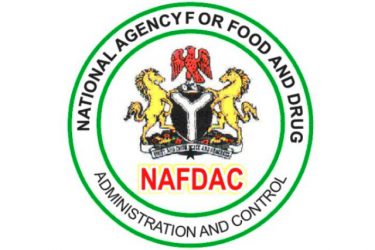The National Agency for Food and Drug Administration and Control has uncovered a fraudulent syndicate scamming foreign businesses with counterfeit regulatory documents.
NAFDAC’s Director-General, Prof. Mojisola Adeyeye made the revelation during a press briefing on Friday, detailing how the criminal network posed as agency officials to extort unsuspecting investors.
According to her, the mastermind of the operation, Mr. Ikoro Ifendu, was arrested on February 7, 2025, in Aba, Abia State, Ifendu, who has only a Secondary School Certificate Examination qualification, allegedly impersonated a NAFDAC official to deceive international companies seeking to import goods into Nigeria.
Prof. Adeyeye explained that the syndicate employed a three-step fraudulent process involving a supposed buyer, a bank, and a fake legal representative.
“They would target foreign companies looking to bring products into Nigeria and direct them to a purported financial institution for payment processing. The bank would then claim that NAFDAC approval was required before the transaction could proceed. Finally, the companies were referred to a fraudulent lawyer, who collected payments in phases and issued fake NAFDAC certificates and receipts,” she said.
Investigations revealed that the syndicate had been operating 15 domiciliary accounts and five local bank accounts across seven Nigerian banks. Some of these accounts were traced to two suspected accomplices, Ikoro Mang Ifendu and Rosemary Obosi.
However, some financial records were deliberately erased, making full tracking difficult.
NAFDAC’s probe uncovered that the fraudsters had already raked in over $950,000 through Nigerian accounts, while an additional $450,000 had been traced to offshore accounts in Cotonou, Benin Republic.
Shockingly, even as NAFDAC addressed the press, unsuspecting victims were still depositing funds into the fraudulent accounts.
“Just before this press conference, we received an alert of $75,000 being deposited into one of the domiciliary accounts,” Adeyeye disclosed.
The agency also revealed that Ifendu and his associates produced fake NAFDAC registration certificates and fraudulent payment receipts to convince their victims.
Among the fake documents issued was a counterfeit Certificate of Registration for dried fish (Seafood), bearing the fraudulent NAFDAC Registration No. A2-7059, which was presented to Thani Almaeeni Trading Group in Abu Dhabi.
Furthermore, falsified revenue receipts showed fraudulent payments of N6,687,000, N20,900,000, and N6,819,200 from various foreign firms.
Investigators also discovered a forged processing requirement document demanding $13,785, fraudulently signed in the name of a former NAFDAC Director-General who had retired a year earlier.
Given the scale of the operation, Prof. Adeyeye announced that NAFDAC would be transferring the case to the Economic and Financial Crimes Commission, for a more in-depth investigation, including asset tracking.
“This case extends beyond NAFDAC’s jurisdiction. We will transfer it to the EFCC to investigate further, particularly in tracking properties and assets acquired through these fraudulent activities,” she stated.
To prevent similar fraudulent activities, NAFDAC has strengthened its Investigation and Enforcement Task Force, deploying more Investigating Police Officers and Mobile Police personnel. The agency is also reconstituting its Federal and State Task Forces to improve regulatory enforcement across the country.
Prof. Adeyeye urged businesses to steer clear of unofficial consultants for product registration and instead use NAFDAC’s official online registration platform.
“We urge the public to remain vigilant. Do not engage with individuals or firms claiming to facilitate NAFDAC registrations outside our official platform,” she cautioned.
Reaffirming NAFDAC’s commitment to cracking down on fraudulent activities, Adeyeye assured Nigerians that the agency would continue to clamp down on syndicates tarnishing its reputation.
“We are taking this issue seriously. Our investigative and enforcement efforts have been strengthened to curb fraudsters who exploit innocent businesses,” she declared.











